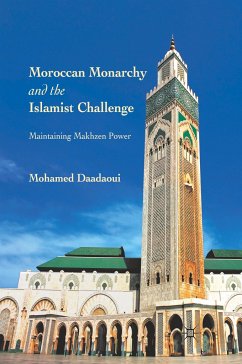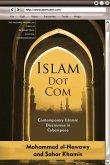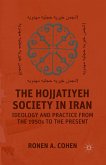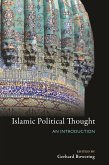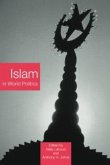"Anyone interested in Moroccan politics, academics as well as policy makers, should acquire this book. Daadoui accomplishes a rare feat: an essay of 150 pages that clearly explains the persistence of the Moroccan monarchical-authoritarian political system... He challenges the one-dimensional views of Islamism and contemporary Arab regimes, offering a parsimonious review of types of Islamists in contemporary politics... Highly recommended." - Choice
"A theoretically sophisticated, culturally specific, and detailed explanation of the Makhzen institution and how the ruling dynasty has successfully made use of tradition, symbols, and ritual to maintain not merely its power, but its perceived legitimacy, in spite of secularist and - more recently - Islamist challenges. Moroccan-born and raised in a well-off family, Daadaoui came to his research with the access and intimate cultural familiarity of a native coupled with the critical, analytical eye of an American-trained social scientist. Future studies of the Moroccan monarchy, institution of governance, and politics will have to take into account Daadaoui's arguments. So too, will further theoretical discussions of the broader topics of Islamic Arab authoritarianism and its rituals of power." - Norman A. Stillman, Professor of History and Schusterman/Josey Chair, Department of History, University of Oklahoma
"This book offers a significant contribution to understanding one of the under-studied countries of North Africa: Morocco. Daadaoui analyzes the relationship between rituals and authoritarianism, as well as the challenges facing the Moroccan monarchy, by contextualizing them in the theoretical traditions of the social sciences. Daadaoui's book will be a valuable contribution to understanding the ability of the traditional Moroccan monarchy to upgrade itself and survive in the modern world. It will be of interest to Middle East scholars, students of the politics of the developing nations, and the growing number of interested readers trying to make sense of the freedom deficit in this crucial region." - Najib Ghadbian, Associate Professor of Political Science and Middle East Studies, University of Arkansas
"Mohamed Daadaoui returns culture to the focus of how Arab regimes can endure their many challenges - especially from their Islamist oppositions. Yet in contrast to both the essentialism of the media and the institutional focus of most scholars, his study of Morocco provides a welcomed multi-dimensional approach towards culture. Daadaoui does this by building on Gramscian notions of ideological attempts at hegemony. He elegantly points out that legitimacy is not a given. It is an explicit strategy built by leaders." - Russell E. Lucas, Department of Politics & International Relations, Florida International University
"A theoretically sophisticated, culturally specific, and detailed explanation of the Makhzen institution and how the ruling dynasty has successfully made use of tradition, symbols, and ritual to maintain not merely its power, but its perceived legitimacy, in spite of secularist and - more recently - Islamist challenges. Moroccan-born and raised in a well-off family, Daadaoui came to his research with the access and intimate cultural familiarity of a native coupled with the critical, analytical eye of an American-trained social scientist. Future studies of the Moroccan monarchy, institution of governance, and politics will have to take into account Daadaoui's arguments. So too, will further theoretical discussions of the broader topics of Islamic Arab authoritarianism and its rituals of power." - Norman A. Stillman, Professor of History and Schusterman/Josey Chair, Department of History, University of Oklahoma
"This book offers a significant contribution to understanding one of the under-studied countries of North Africa: Morocco. Daadaoui analyzes the relationship between rituals and authoritarianism, as well as the challenges facing the Moroccan monarchy, by contextualizing them in the theoretical traditions of the social sciences. Daadaoui's book will be a valuable contribution to understanding the ability of the traditional Moroccan monarchy to upgrade itself and survive in the modern world. It will be of interest to Middle East scholars, students of the politics of the developing nations, and the growing number of interested readers trying to make sense of the freedom deficit in this crucial region." - Najib Ghadbian, Associate Professor of Political Science and Middle East Studies, University of Arkansas
"Mohamed Daadaoui returns culture to the focus of how Arab regimes can endure their many challenges - especially from their Islamist oppositions. Yet in contrast to both the essentialism of the media and the institutional focus of most scholars, his study of Morocco provides a welcomed multi-dimensional approach towards culture. Daadaoui does this by building on Gramscian notions of ideological attempts at hegemony. He elegantly points out that legitimacy is not a given. It is an explicit strategy built by leaders." - Russell E. Lucas, Department of Politics & International Relations, Florida International University

